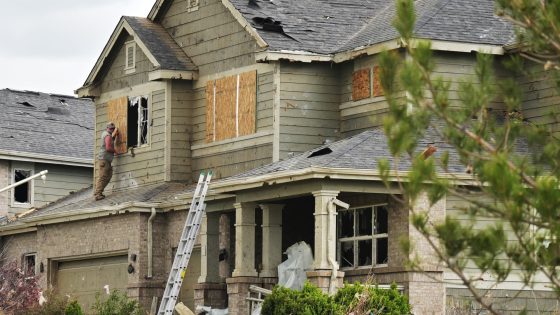Global insured losses have surged to $84 billion in the first half of 2025, marking the highest total since 2011. This alarming figure highlights the increasing frequency and severity of natural disasters worldwide, with significant implications for the insurance industry.
- Tornado damage in Elkhorn Ranch, May 2025
- Global insured losses reach $84 billion
- Severe storms cause over $30 billion losses
- Historic storm outbreak resulted in 43 fatalities
- 2025 may exceed $100 billion in losses
- Rising housing costs increase insurance payouts
Severe storms in the U.S. have been particularly devastating, contributing over $30 billion to these losses. On May 19, 2025, a tornado caused extensive damage in Elkhorn Ranch, Elbert County, underscoring the urgent need for better disaster preparedness. As of 2025-07-18 22:34:00, the trend shows no signs of slowing down.
This surge in insured losses raises critical questions about the future of risk management across various regions. How can insurers adapt to these escalating costs? The challenges are multifaceted:
- Increased storm frequency leads to higher claims, particularly in the U.S. and Europe.
- Soaring housing costs amplify the financial impact of natural disasters.
- Regions prone to wildfires, like Southern California, face unprecedented losses.
- Global warming exacerbates weather-related risks, affecting markets worldwide.
As we move forward, it is crucial for governments and businesses to collaborate on enhancing resilience against natural disasters. The time to act is now—how prepared are we for the challenges ahead?































